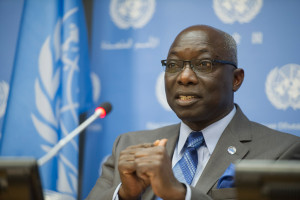By Sarah Lafen
Impunity Watch Desk Reporter, Europe
LONDON, England — Britain’s exit from the European Union (EU) is likely to signal a massive influx of immigration into the country from other European Nations as well as from countries around the world. Negotiations regarding Brexit are expected to take at least two years.

Until those negotiations are final and Britain formally withdraws from the EU, Britain is obligated to continue to grant access to any EU citizen who wishes to enter the country. An estimated 500,000 Eastern Europeans are predicted to migrate into Britain within the next two years, before Britain’s borders close. Chris Grayling, a senior minister on the Leave side of the government, predicts Britain will take some action to restrict a huge influx of migrants prior to Britain’s official withdrawal if necessary, however states that doing so would break EU rules of free movement between the countries.
Trade between Britain and EU countries will play a major role in the maintenance, decrease, or increase of immigration into Britain post-Brexit. If Britain chooses to maintain free trade with the EU, they can remain in the European Economic Area (EEA). By remaining in the EEA, Britain would have to keep free movement of labor, which would have little effect on the country’s economic and immigration levels. If Britain chooses to leave the EEA, other EU nations might feel “scorned” by Britain’s departure, and could demand the imposition of certain immigration policies in return for free trade with Britain. Britain may choose not to remain in the EEA, however, since one of the platforms of the Leave campaign includes the goal of regaining control over immigration into the country. The Leave campaign maintains their stance on immigration control despite research which has shown that immigration into Britain has helped bolster the country’s economy.
Some predict that Britain will pursue a more selective immigration process once their exit from the EU is complete. Such a system might mirror that which is currently used in Canada and Australia – a point-based system which invites skilled migration into the country. This system puts a cap on how many people are admitted into the country per profession. Britain currently uses a point system to grant visas to non-EU immigrants, however it is unclear whether or not that system will change in light of Brexit.
EU citizens who are currently residing in Britain will be allowed to remain in Britain indefinitely.
For more information, please see:
NY Times — A Lesson From ‘Brexit’: On Immigration, Feelings Trump Facts — 26 June 2016
Financial Times — What Will Brexit Mean for Immigration? — 24 June 2016
The Daily Signal — How Immigration Fueled the Brexit Result — 23 June 2016
CNN — Brexit: What Will Immigration Look Like if Britain Leaves the EU? — 20 June 2016



